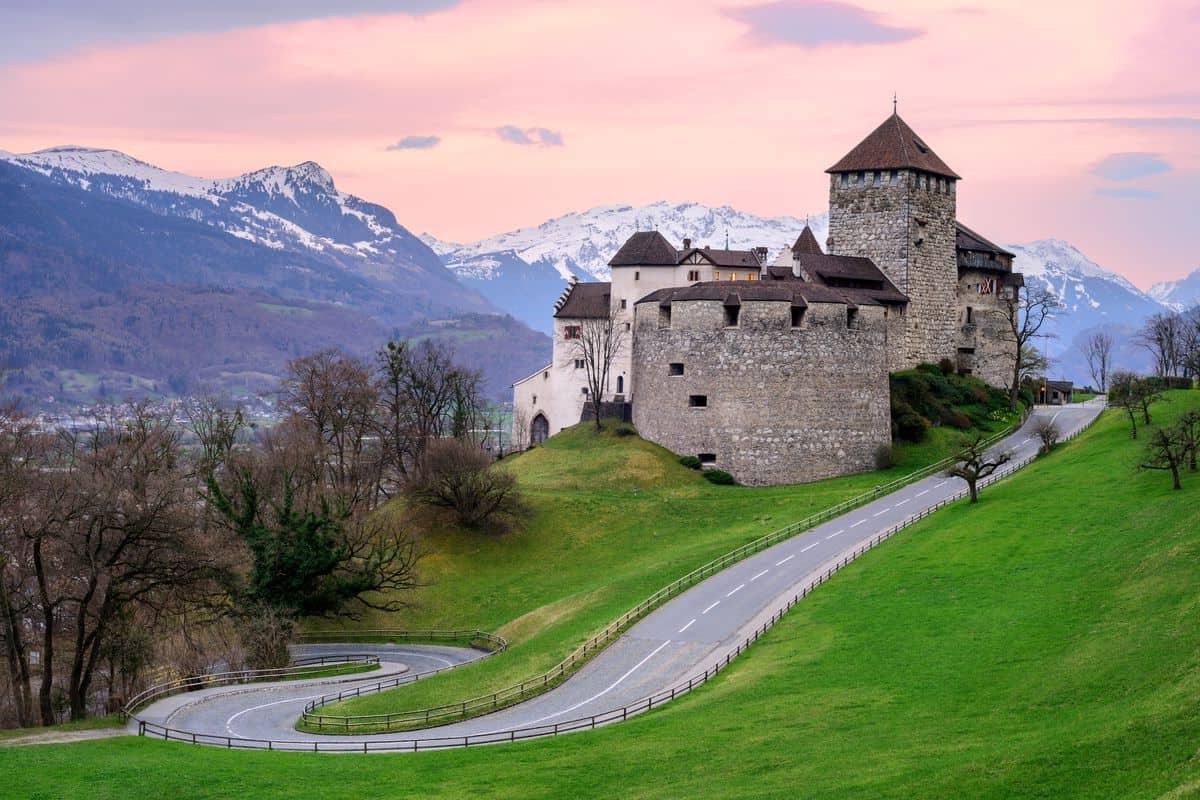
Where is Liechtenstein? Nestled between Switzerland and Austria, Liechtenstein is a tiny yet fascinating country in Central Europe. With an area of just 62 square miles, it's one of the world's smallest nations. Despite its size, Liechtenstein boasts a rich history, stunning landscapes, and a high standard of living. The capital, Vaduz, is home to the royal family and offers a glimpse into the country's unique blend of modernity and tradition. Whether you're interested in its alpine scenery, medieval castles, or vibrant cultural scene, Liechtenstein has something for everyone. Ready to learn more? Let's dive into 10 intriguing facts about this hidden gem!
Key Takeaways:
- Liechtenstein, a tiny country between Switzerland and Austria, is the smallest German-speaking country, double landlocked, and known for its Alpine terrain, making it a haven for winter sports enthusiasts.
- Despite its small size, Liechtenstein boasts a constitutional monarchy, high GDP per capita, and a rich cultural heritage, including National Day celebrations, Vaduz Castle, and famous postal stamps.
Liechtenstein: A Tiny Yet Fascinating Country
Liechtenstein, a small yet intriguing country nestled between Switzerland and Austria, often flies under the radar. Despite its size, this microstate boasts a rich history, unique culture, and some surprising facts.
Liechtenstein's Unique Geography
Liechtenstein's geography is as fascinating as its history. Here are some interesting geographical facts about this tiny nation:
-
Smallest German-Speaking Country: Liechtenstein is the smallest country where German is the official language. It covers just 160 square kilometers.
-
Double Landlocked: One of only two countries in the world that are double landlocked. This means it is surrounded by other landlocked countries, Switzerland and Austria.
-
Alpine Terrain: The country is predominantly mountainous, with the Alps covering most of its territory. This makes it a haven for winter sports enthusiasts.
Political and Economic Facts
Despite its small size, Liechtenstein has a robust political and economic system. Here are some key points:
-
Constitutional Monarchy: Liechtenstein is a constitutional monarchy headed by a prince. The current prince, Hans-Adam II, has significant political power.
-
High GDP per Capita: Liechtenstein boasts one of the highest GDP per capita in the world. Its economy is highly industrialized and diversified.
-
No National Debt: Remarkably, Liechtenstein has no national debt. Its prudent financial policies have kept the country in excellent economic health.
Cultural and Historical Tidbits
Liechtenstein's culture and history are rich and varied. Here are some intriguing cultural and historical facts:
-
National Day: Liechtenstein celebrates its National Day on August 15th. This day is marked by fireworks, speeches, and festivities.
-
Vaduz Castle: The Vaduz Castle, home to the princely family, is a prominent landmark. It dates back to the 12th century and offers stunning views of the Rhine Valley.
-
Postal Stamps: Liechtenstein is famous for its postal stamps, which are highly sought after by collectors worldwide. The country's postal service is a significant source of revenue.
Education and Innovation
Liechtenstein places a high value on education and innovation. Here are some facts highlighting this aspect:
- High Literacy Rate: The country boasts a near 100% literacy rate. Education is highly valued, and the government invests heavily in the education system.
Liechtenstein may be small, but it is packed with fascinating facts and unique characteristics. Whether it's the stunning Alpine scenery, the robust economy, or the rich cultural heritage, this tiny nation has much to offer.
Final Glimpse at Liechtenstein
Liechtenstein may be small, but it's packed with fascinating facts. Nestled between Switzerland and Austria, this tiny nation boasts a rich history, stunning alpine landscapes, and a thriving economy. With no military and a unique political system, Liechtenstein stands out in Europe. Its high standard of living, low crime rate, and strong financial sector make it a unique place to live and visit. The Vaduz Castle, home to the royal family, adds a touch of fairy-tale charm. Despite its size, Liechtenstein has a lot to offer, from cultural festivals to outdoor adventures. Whether you're a history buff, nature lover, or just curious about this hidden gem, Liechtenstein won't disappoint. So next time you think of European destinations, remember this small but mighty principality.
Frequently Asked Questions
Was this page helpful?
Our commitment to delivering trustworthy and engaging content is at the heart of what we do. Each fact on our site is contributed by real users like you, bringing a wealth of diverse insights and information. To ensure the highest standards of accuracy and reliability, our dedicated editors meticulously review each submission. This process guarantees that the facts we share are not only fascinating but also credible. Trust in our commitment to quality and authenticity as you explore and learn with us.


